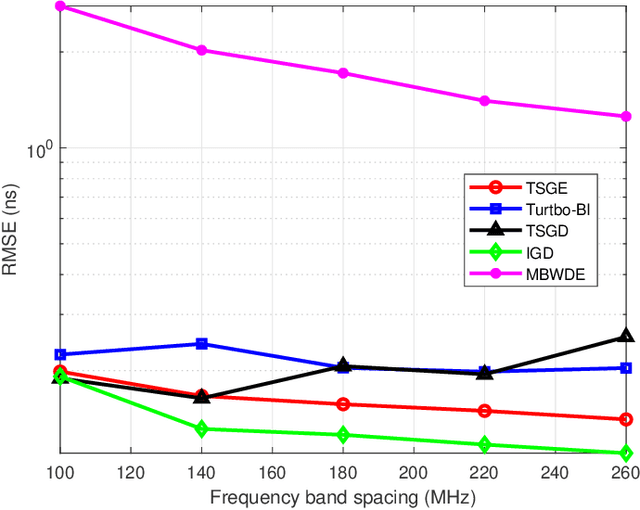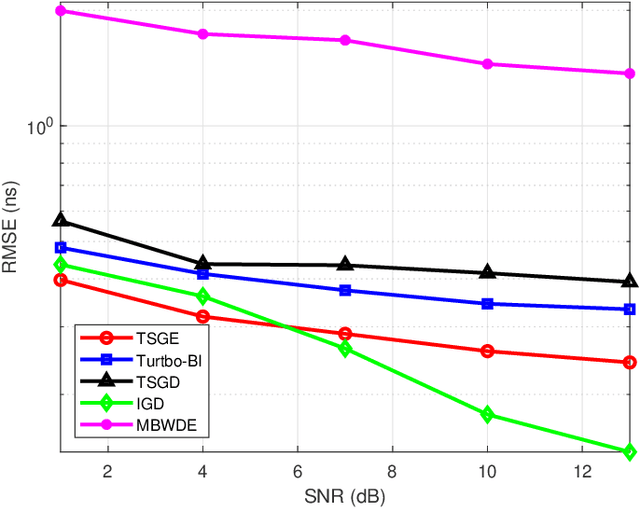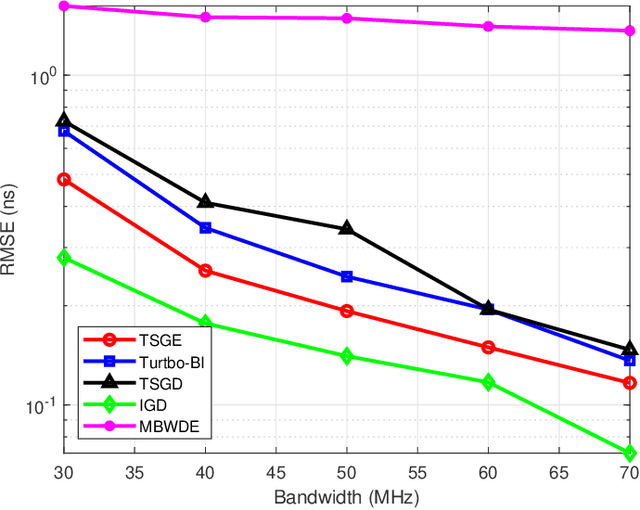Multiband Delay Estimation for Localization Using a Two-Stage Global Estimation Scheme
Paper and Code
Jun 20, 2022



The time of arrival (TOA)-based localization techniques, which need to estimate the delay of the line-of-sight (LoS) path, have been widely employed in location-aware networks. To achieve a high-accuracy delay estimation, a number of multiband-based algorithms have been proposed recently, which exploit the channel state information (CSI) measurements over multiple non-contiguous frequency bands. However, to the best of our knowledge, there still lacks an efficient scheme that fully exploits the multiband gains when the phase distortion factors caused by hardware imperfections are considered, due to that the associated multi-parameter estimation problem contains many local optimums and the existing algorithms can easily get stuck in a "bad" local optimum. To address these issues, we propose a novel two-stage global estimation (TSGE) scheme for multiband delay estimation. In the coarse stage, we exploit the group sparsity structure of the multiband channel and propose a Turbo Bayesian inference (Turbo-BI) algorithm to achieve a good initial delay estimation based on a coarse signal model, which is transformed from the original multiband signal model by absorbing the carrier frequency terms. The estimation problem derived from the coarse signal model contains less local optimums and thus a more stable estimation can be achieved than directly using the original signal model. Then in the refined stage, with the help of coarse estimation results to narrow down the search range, we perform a global delay estimation using a particle swarm optimization-least square (PSO-LS) algorithm based on a refined multiband signal model to exploit the multiband gains to further improve the estimation accuracy. Simulation results show that the proposed TSGE significantly outperforms the benchmarks with comparative computational complexity.
 Add to Chrome
Add to Chrome Add to Firefox
Add to Firefox Add to Edge
Add to Edge